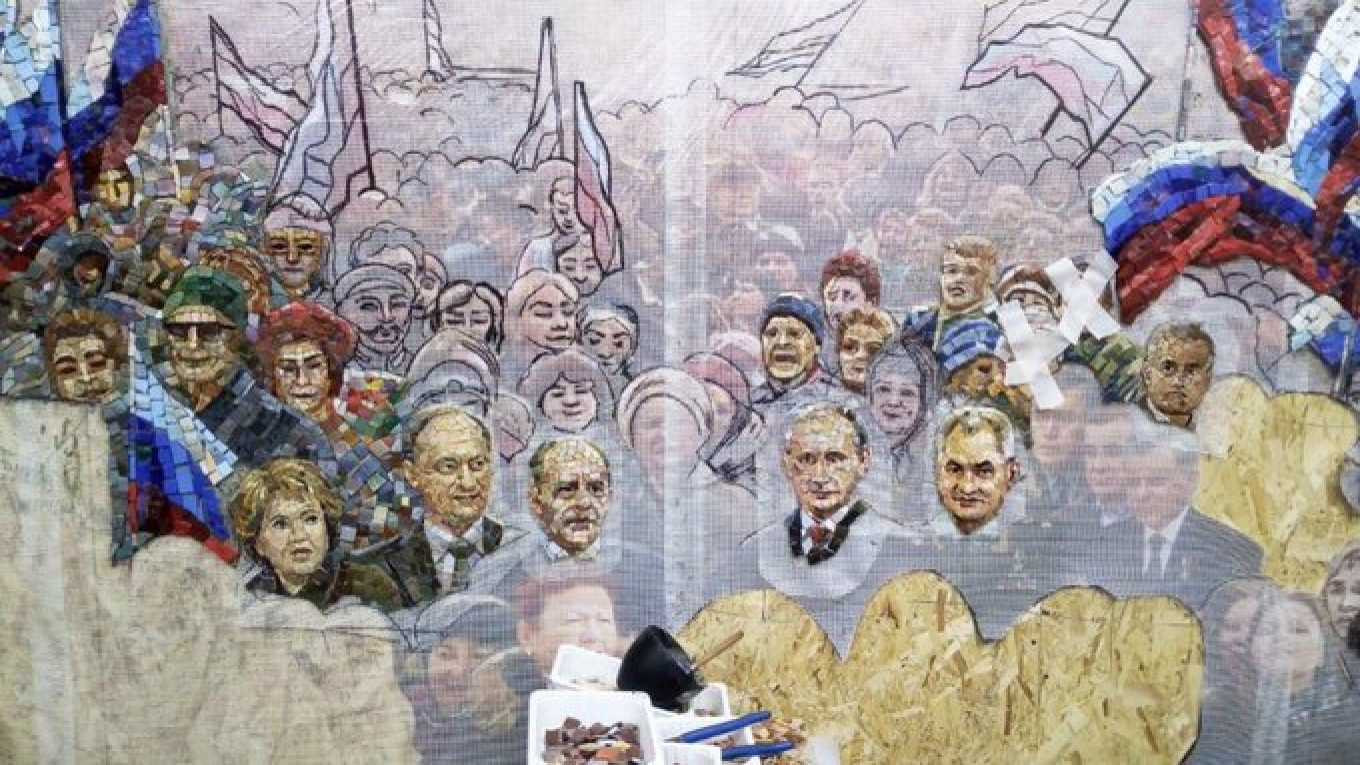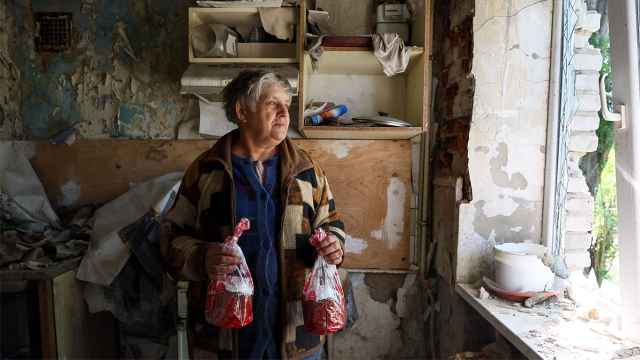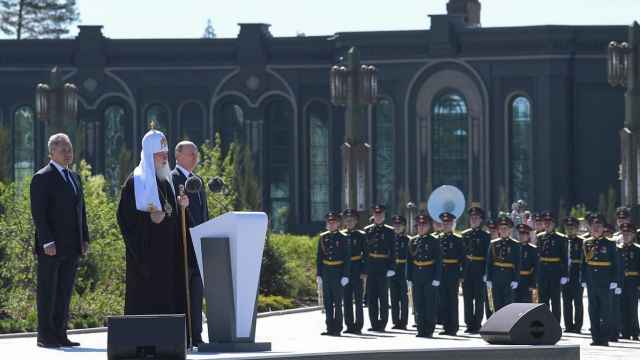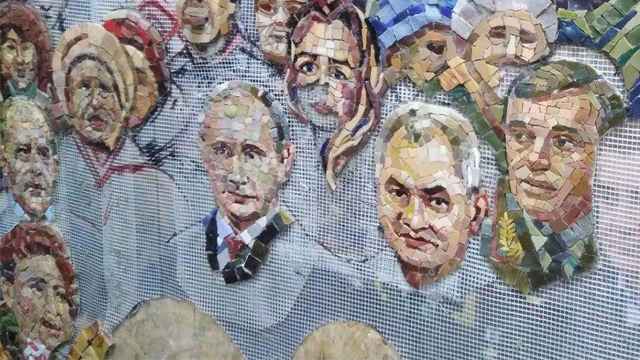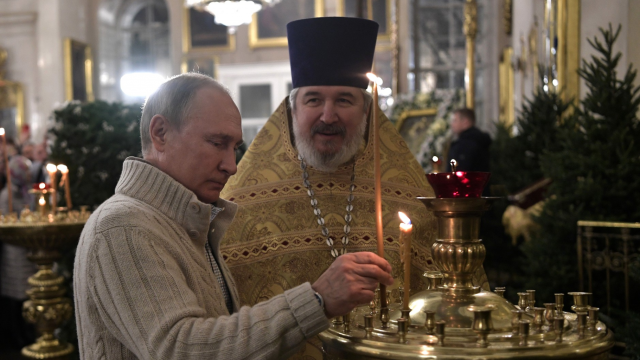A mosaic featuring Russian President Vladimir Putin will no longer be displayed in a grand military church being built outside Moscow after the leader objected, a cleric said on Friday.
Russian Orthodox Bishop Stefan of Klin told news agency Interfax the committee in charge of the church's interior decoration "decided not to display it" because it was "the wish of the head of the country."
The mosaic is still in a workshop and is likely to be dismantled, said the bishop, who will be the archpriest of the military church.
The Cathedral of the Armed Forces was due to open this month featuring wall mosaics depicting Putin's face along with officials including Defense Minister Sergei Shoigu in a panel glorifying Russia's annexation of Crimea.
The church's interior also depicts Soviet dictator Josef Stalin at the victory parade at the end of World War II. It was not clear if this fragment has also been removed.
Reports on the church's interior prompted a storm of criticism, including from the Kremlin.
Putin's spokesman Dmitry Peskov said that when Putin learned of the mosaic "he smiled and said: 'Some day grateful future generations will appreciate our achievements but it's too early to do this now.'"
The mosaic with Putin was intended to be a paean to the 2014 takeover of the Black Sea peninsula.
Bishop Stefan said the mosaic had planned to show the "bloodless joining of Crimea to Russia" with a medley of portraits of figures involved.
"If that seems premature to anyone, then possibly it is a good idea to avoid depicting this in a church," he said.
Depicting historical events is acceptable in some areas of a church, he said, nevertheless.
"That doesn't mean we carry pictures of historical events up to the altar."
A Message from The Moscow Times:
Dear readers,
We are facing unprecedented challenges. Russia's Prosecutor General's Office has designated The Moscow Times as an "undesirable" organization, criminalizing our work and putting our staff at risk of prosecution. This follows our earlier unjust labeling as a "foreign agent."
These actions are direct attempts to silence independent journalism in Russia. The authorities claim our work "discredits the decisions of the Russian leadership." We see things differently: we strive to provide accurate, unbiased reporting on Russia.
We, the journalists of The Moscow Times, refuse to be silenced. But to continue our work, we need your help.
Your support, no matter how small, makes a world of difference. If you can, please support us monthly starting from just $2. It's quick to set up, and every contribution makes a significant impact.
By supporting The Moscow Times, you're defending open, independent journalism in the face of repression. Thank you for standing with us.
Remind me later.


